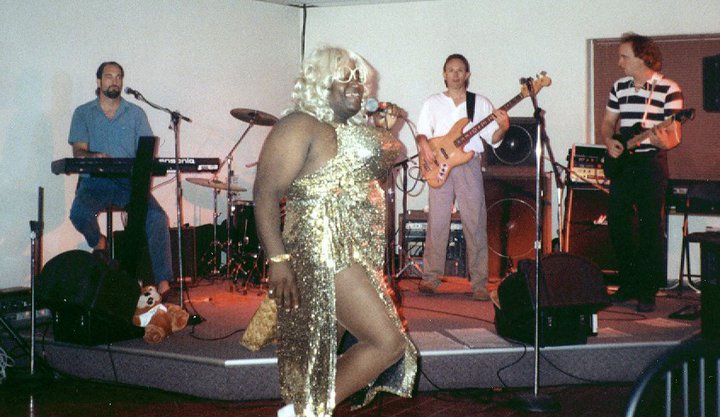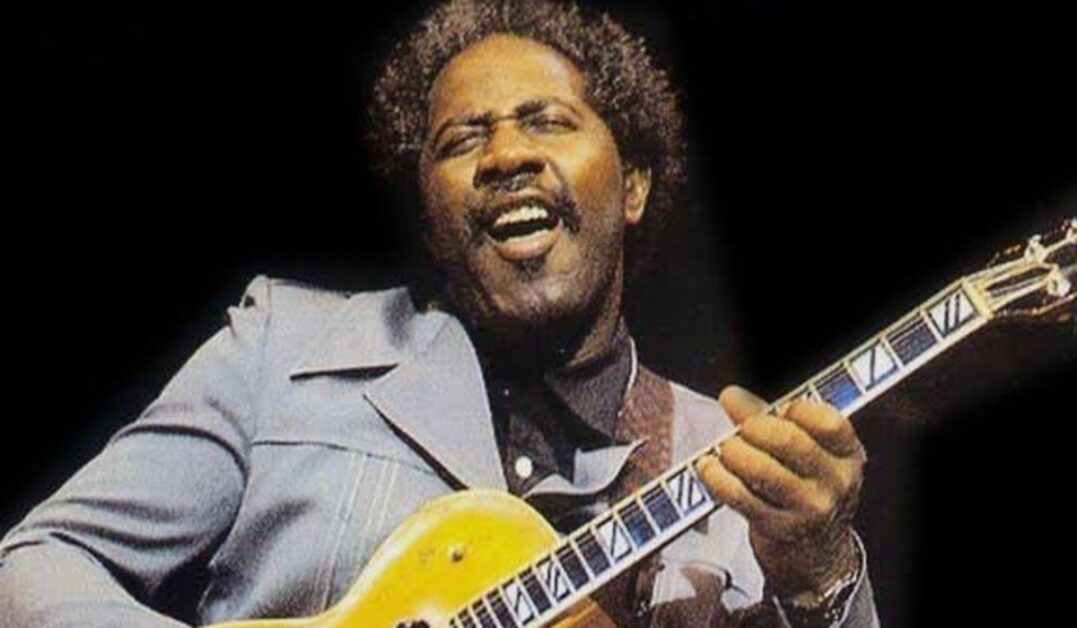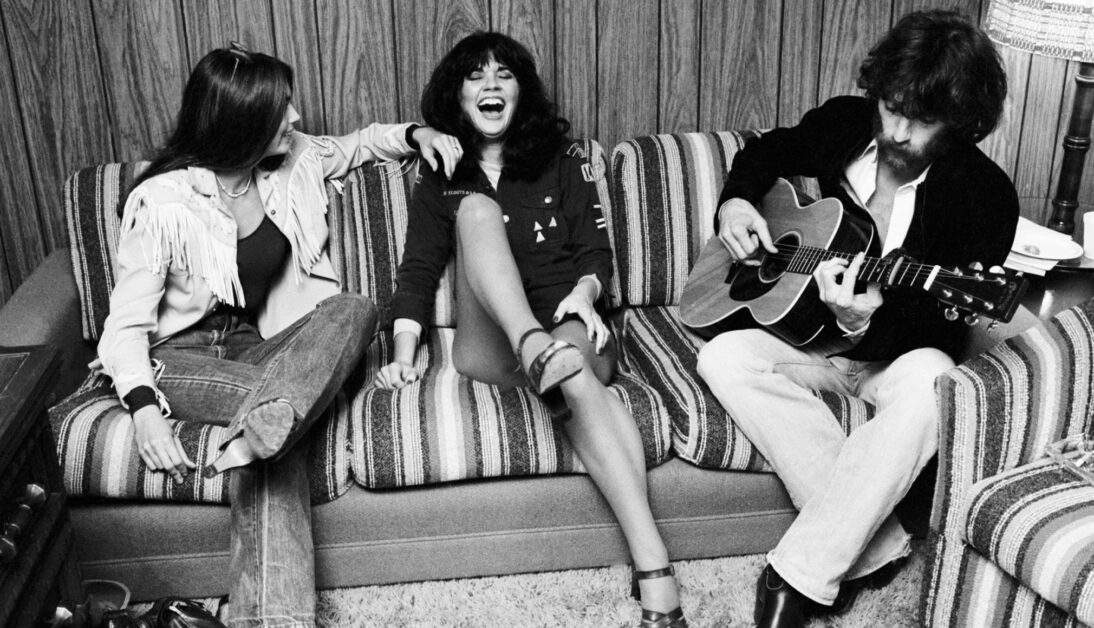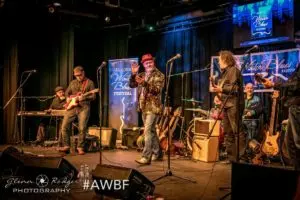Rhiannon Giddens: Artist, Educator, Historian
Originally Posted on – Blues For A Big Town Blog

“An electrifying artist who brings alive the memories of forgotten predecessors White and Black”
Smithsonian Magazine
“One of the most important musical minds currently walking the planet”
American Songwriter
The above quotes stand as praise of the highest order and attest to not only Rhiannon Giddens’ superlative musical talents but also her somewhat scholarly approach to giving credit where due as to the origins of that same music.
That being said, in the course of researching this article I couldn’t help thinking that I was getting a history lesson. Integral to that lesson was what can be deemed as the White appropriation of Black culture and art in the American South; (that started at the turn of the twentieth century). And, further, that there’s an historical thread of both White and Black expressions that extends to Rhiannon Giddens’ work in the 2000’s.
In saying that, Giddens stands as a revisionist who uses both her historical knowledge and curiosity to help shape her particular brand of 21st century eclectic “Folk” music. That’s “Folk” in the broadest sense of the term. That is, an idiom belonging to the people rather than a genre confined to an accepted form.
Accordingly, her “music for the people and of the people”, stretches far and wide. In the hopes that it captivates listeners, and is accepted as simply American music. Giddens seeks a common ground for Blues, Jazz, Cajun, traditional Folk, Country, Gospel, Rock, Classical, Opera, and any combination thereof. Not to be missed in this catchall of styles, is her recognition of global idioms and vernaculars that serve as influences in her working of said genres. Such knowledge also plays a role in Rhiannon’s self awareness as a cultural global citizen.
This somewhat reflective method coincides perfectly with Giddens’ aforementioned intellectual approach to matters at hand.
A self professed nerd in her academic days, her quest of seeking to provide an accurate understanding of musical origins have earned her much deserved recognition from contemporaries, critics and fans both Nationally and Internationally.
In the course of her endeavors, among her triumphs, Rhiannon has won not only 2 Grammy Awards but also a Pulitzer Prize in Music. In addition, Giddens created an on-line series on the history of the banjo, hosted a podcast that examined famous songs from operas, has written a ballet score, and conducted various lectures on musical topics. And lastly, has had roles in movies and the TV series Nashville. Whew!
The 47 year old Rhiannon Giddens grew up in her birthplace of Greensboro North Carolina; (she also spent some of her childhood years in nearby Gibsonville).
Commenting that it has a lot to do with who she is, Rhiannon describes Greensboro as a cultural mix of people from all walks of life; of Blacks and Whites living together. (Although it wasn’t without a struggle, as Rhiannon notes that Greensboro’s Woolworth’s lunch counter – now a Civil Rights Museum – was the site of the beginning of the sit-in movement). Giddens termed it all as “an interesting agitation” and that she “kind of grew up with all that around me”.
Her parents were both university graduates that undoubtedly provided an environment that helped foster Rhiannon’s own scholastic endeavours and ambitions.
Further, being the product of an interracial marriage – a White father and a Black mother with indigenous roots – for all intents and purposes, enhanced her existing global mindset.
While in high school she became aware that, while she sided with academics, she didn’t always fit in socially with either the Black or White students.
It stemmed from the fact Rhiannon wasn’t the most outgoing student. And, as such, had a measured acceptance. She recalled that the Black students viewed her as somewhat of hippie, and the White girls “didn’t know what to do with me”. But, being that as it may, the situation didn’t stop her from pursuing and excelling in her studies.
Those studies included attending and graduating from Oberlin Conservatory of Music where Rhiannon focused on Opera.
Music was second nature to Rhiannon in her ability to learn how to play a number of instruments; but her vocals were her initial calling card. That is, she possessed an expressive, convincing singing voice regardless of category.

That voice was apparent in her younger years when the family remembers Rhiannon always singing around the house both on her own and harmonizing with her sister. It didn’t stop there as Rhiannon joined a well regarded Greensboro youth choir that provided the opportunity for her first public experience performing music.
Her singing prowess – in this case Opera – provided a gateway to learning to play instruments through her job at the local Macaroni Grill where Rhiannon worked as a hostess. There, in addition to other duties, her responsibilities entailed singing Italian arias. She used her earnings to buy a fiddle and her first banjo.
While singing obviously was a passion she couldn’t and wouldn’t ignore, Rhiannon now turned her attention to learning to play her newly acquired instruments, focusing primarily on the fiddle.
As she advanced in her learning of the instruments, in keeping with her devotion to serious, deeply researched musical projects, Rhiannon read African Banjo Echoes In Appalachia. The book, written by folklorist Cecelia Conway, detailed how the banjo – and secondarily the fiddle – long associated with Southern Folk were actually borrowed from African Americans.
In meeting and becoming friendly with Conway, Rhiannon learned about Black fiddler Joe Thompson, a musical descendent of revered Black fiddler Frank Johnson, (who was active in the late 1800’s). Conway told Giddens that Thompson would be appearing at a North Carolina event, The Black Banjo Then And Now Gathering, in nearby Boone.
Rhiannon was now on a mission to see and hopefully meet Joe Thompson. And, as it happens, two young Black musicians, Justin Robinson and Dom Flemons, were on the same quest.
The two musicians, who shared Giddens’ historical music inquisitiveness met Rhiannon at the festival for the first time and exchanged notes.
The three like minded musicians met the 86 year old Thompson, struck up a friendship, and made regular trips to Thompson’s home in Mebane NC to learn from him first hand. In reality they didn’t take lessons as such; they just played, learning the nuances of the music, (“the feel, the energy, the flow”).
And in Rhiannon’s case, she had hoped to learn to play the fiddle more adeptly from Thompson. After Thompson explained that he always played with a banjo, Giddens’ volunteered to play the banjo in accompaniment. It was soon to become Rhiannon’s instrument of choice.
In 2006, a year after meeting at The Black Banjo Gathering, the three musicians formed The Carolina Chocolate Drops. The original line-up consisted of: Rhiannon (fiddle, banjo, vocals), Justin Robinson (fiddle), Dom Flemons (guitar, jug, harmonica, percussion, banjo).
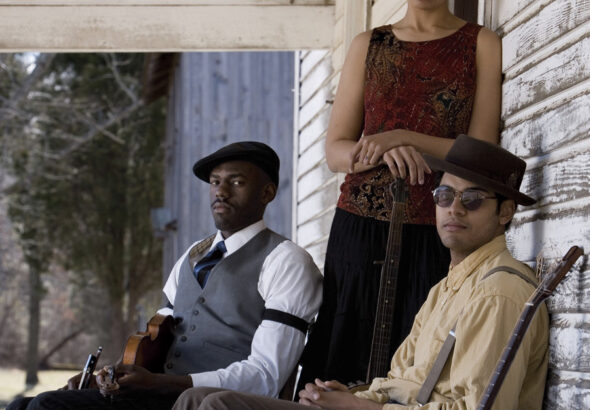
The Drops started out playing coffee houses and busking on street corners. In doing so, they caught the imagination of audiences who were drawn to the novelty of a Black African American string band, The group built enough of a following to go into the studio and record their critically acclaimed first album Dona Got A Ramblin’ Mind. They established their sound that was rooted in the traditional music of the foothills and mountains of the Carolinas; and would record 5 more albums.
Rhiannon left after the first two releases with an eye towards new opportunities.
One such opportunity presented itself when Giddens was approached by Roots maven T-Bone Burnett about performing – along with Patti Smith, Gillian Welch, and Jack White among others – at an event he was producing at Town Hall in Manhattan.
The concert was developed as a partner project to the Coen Brothers movie Inside Llewan Davis. (Burnett produced the soundtrack). Giddens, a relative unknown, chose to sing “Waterboy”, a convict song associated with Odetta; and stole the show.
A few months later Rhiannon was in the studio laying down tracks for her first solo album – Tomorrow Is My Turn – with Burnett helming the project***.
With Giddens, having determined that “we’re all part of a lineage of who came before, and who we listen to, and who helped shape our internal sense of what we sound like”, “Tomorrow” is a combination of covers and traditional songs.
Further completing that thought process, Rhiannon who draws inspiration from Odetta, Elizabeth (Libby) Cotton, and Patsy Cline, pays homage to all three on the release.
Odetta’s “Waterboy” and Cotton’s “Shake Sugaree” are rendered both soulfully and respectfully.
On Cline’s “She’s Got You”, Rhiannon takes a different tact. In Giddens’ hands, the song starts out as a plaintive lament and transforms into a stirring Soul scorcher. Patsy would be proud.
***It should be noted that in addition to her other recorded works, Giddens also released two duet albums, There Is No Other and They’re Calling Me Home, with her musical and romantic partner, Francesco Turrisi. Turrisi, (keys & accordion), is an Italian Jazz musician who studied early music and examines African and Mediterranean styles. Giddens and Turrisi occasionally tour both as a duo and fronting a full band***.
The following year Rhiannon released her second album, Freedom Highway.
Giddens co-produced the album with multi- instrumentalist and sometime bandmate Dirk Powell. Still with an eye on the rear-view mirror of past musical styles, the release differs from Tomorrow Is My Turn while building on what came before. Where “My Turn” is essentially an album composed of covers, Freedom Highway finds Rhiannon with her hand in writing or co-writing ten of the twelve offerings.
The album deals with a number of topics but what hits hard and has lasting effect are the bookends of slavery, (the first track “At The Purchaser’s Option”), and the liberation of the album closer, The Staples’ “Freedom Highway”. In what appears to be a conscious decision on Giddens’ part, she moves the listener from despair to liberation.
And it’s not an easy ride. The album demonstrates the struggle on the road to freedom that doesn’t always move in a straight line.
One such step sideways is Rhiannon’s adaptation of Richard Farina’s “Birmingham Sunday”. Here she sets the scene of the bombing of the 16th Street Baptist Church that took the lives of four young Black girls in 1963. The ever hopeful, repeated lyrics “And the choirs kept singing of freedom” in particular carry a lot of weighted heartbreak.
In sum, the album has to be heard in its entirety to be fully appreciated. There isn’t a weak cut on the record – in either the songwriting, the musicianship, or the singing. It’s a striking effort all the way around.
The latest release You’re The One might offer a glimpse of where Rhiannon Giddens is today.
Forever the educator and historian, it seems that the record is Giddens’ all-out attempt to gain a wider audience. It’s not a commercial sell-out as such, because there’s still considerable substance in her work. Giddens just wants more people to hear it and, ultimately, hear her.
For the first time, Rhiannon has recorded a full album of original songs.
The songs are more in a Pop / Soul vein but continue to display her command of a wide range of styles. Standout cuts include: “Too Little, Too Late, Too Bad”, “Yet To Be”, and “Wrong Kind Of Right”. Produced by Grammy Award winner Jack Splash, (Alicia Keys, Kendrick Lamar, Valerie June etc.), the release is sure to rightfully win over some new fans.
Saying that she “plays Black music for White people”, Giddens knows full well that the majority of her audience is White; and she has no problem with that saying “Half my family is White”.
And, rest assured, that Giddens is not going to forego her current audience for the sake of encompassing more of a Black following by playing more commercial material.
She’s just of the mind of having a little more fun; putting it out there; and, while hopeful, with a “let the cards fall where they may” attitude. Finally, given the sheer artistry of You’re The One, it’s clear that Rhiannon Giddens is making no compromises.
That’s Ms. Rhiannon Giddens – artist, educator, historian, star!
Rhiannon Giddens Playlist





